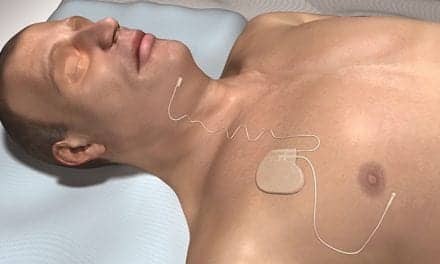A new study found that surgical weight loss should not be expected to fix obstructive sleep apnea (OSA) cases.
The study found that surgical weight loss results in an improvement of OSA after the procedure, but that improvement does not usually last through the year following surgery. Bariatric surgeries in the study resulted in a reduced average body mass index (BMI) of 32, down from a preoperative average of 51. However, only one participant (4%) in the study had completely resolved OSA 1 year after surgery, while 74% of patients still had moderate to severe OSA. Postoperative polysomnography found the apnea-hypopnea index was reduced in 22 subjects. Twenty-three of the 24 participants had persistent OSA at the 1-year follow-up.
The results of this study suggest it is the severity of the condition, not the patient’s presurgical weight, that determines if OSA will be resolved by bariatric surgery.
“We were surprised by the severity of the residual sleep apnea in postoperative patients. The majority of individuals still had moderate to severe OSA,” says lead investigator Christopher J. Lettieri, MD, chief of sleep medicine at Walter Reed Army Medical Center.
The study was composed of 24 patients referred to the pulmonary critical care and sleep medicine service for preoperative evaluation of excessive daytime sleepiness prior to undergoing bariatric surgery. Patients received overnight polysomnography prior to surgery and 1 year after surgery.
The Journal of Clinical Sleep Medicine published the full study.




